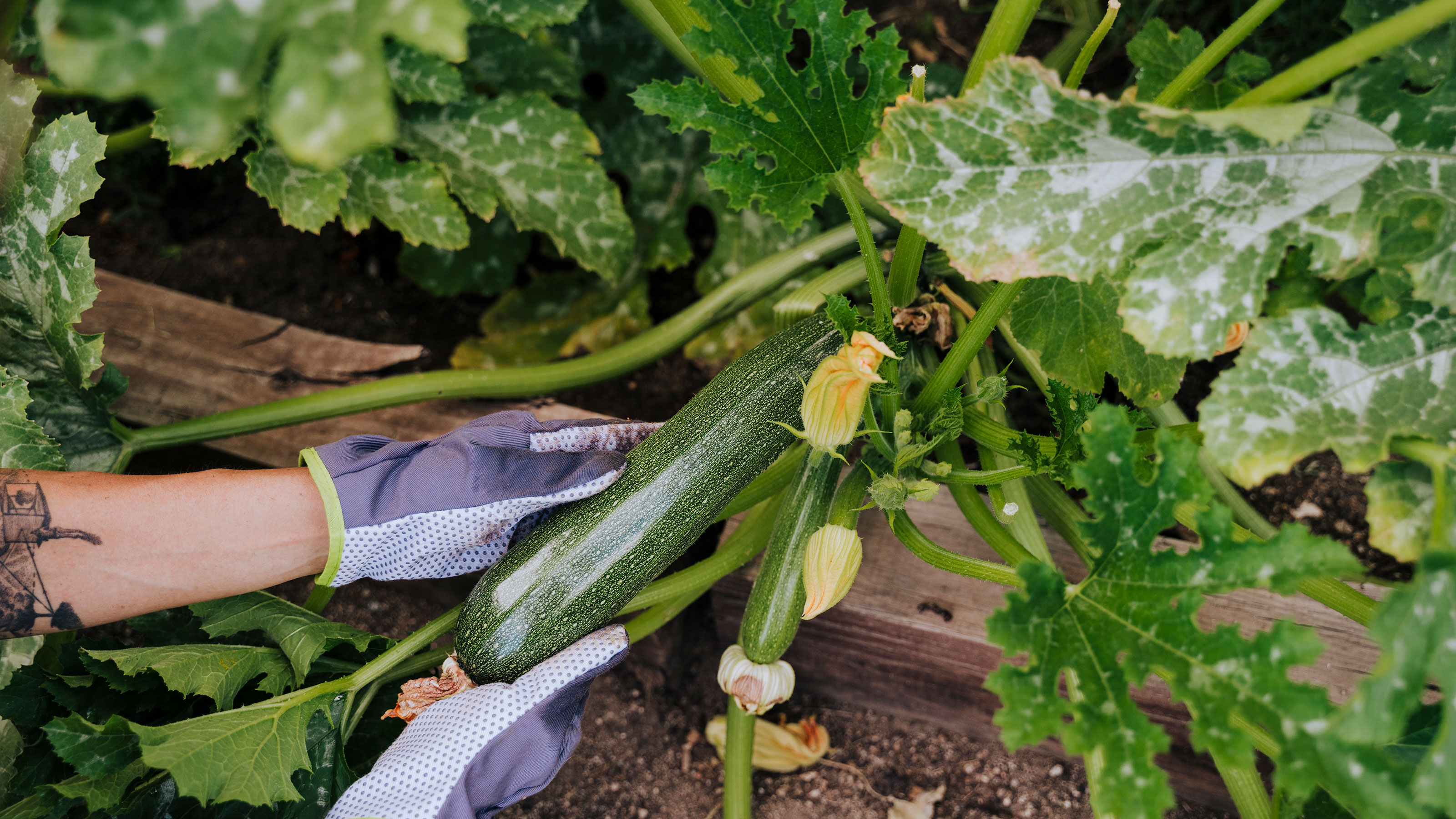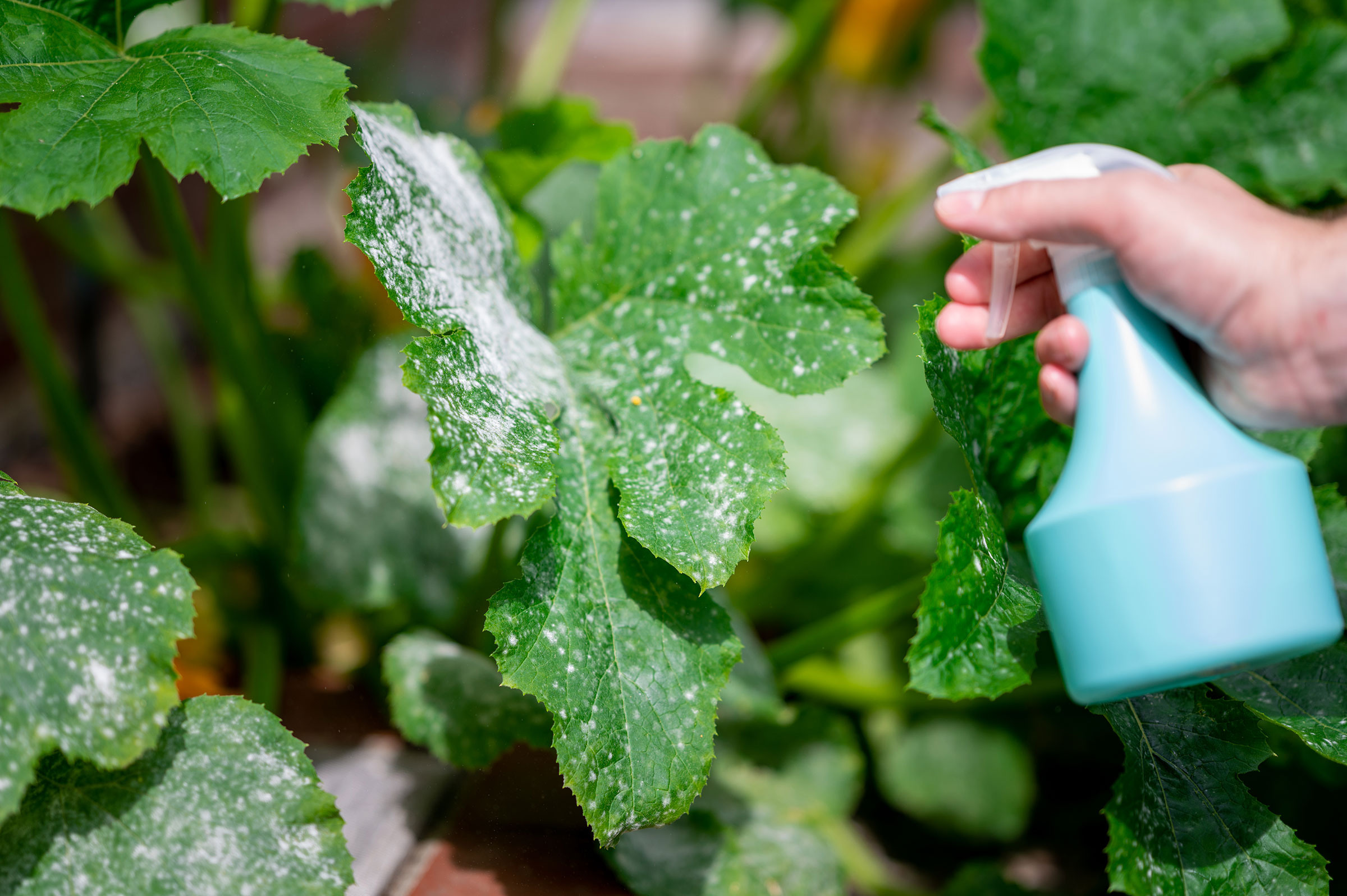5 zucchini growing problems and how to fix them, according to a Farmer
If you're running into your fair share of zucchini growing problems this season, not to panic, they can be fixed and your plants saved


Whatever you may be growing in your vegetable garden, you'll know that it’s never plain sailing, and zucchini problems happen to the best of us, no matter how green your thumb may be.
If you’re growing zucchini in garden beds or, like me, in containers on a balcony or small patio, you’ll know just how satisfying it is to see those zucchini flowers blossom and the zucchini fruits themselves coming through shortly after. But for any yellowing foliage, frazzled-looking baby courgettes or larger zucchinis rotting on the vine, what can you do?
Matthew Geldin, Head Farmer at Farmscape notes how you can run into different problems when growing zucchini but that most can be fixed or avoided if you act fast.
Zucchini plants need bright direct sunlight, lots of room to grow and a lot of of water, especially in a hot summer. As the 4th most grown vegetable in the US, it's a very popular veg to keep in your garden, when your climate will allow for it. If you're a fellow zucchini grower, watch out for these common issues:
1. Powdery mildew
Powdery mildew is a white fuzzy fungus that you'll see on leaves and it affects nearly all squash according to Geldin who says that you can look for resistant varieties if you wish. If it looks like your zucchini has powder mildrew, grab sharp secateurs and 'prune off most affected leaves'. Geldin advises spraying affected areas with potassium bicarbonate also. Simply mix a tablespoon with about a gallon of water and half a teaspoon of dish soap like Dawn in a spray bottle and apply liberally.

2. Blossom end rot
I see this most years when growing zucchini and admittedly watering my garden consistently doesn't always happen, especially now that summers tend to be warmer, even in England.
Gledin says 'This is technically a calcium deficiency but usually caused by insufficient or uneven watering. To avoid this, use an irrigation system to maintain regular watering, and adjust water as necessary. Most soils don't need a calcium supplement but do a soil test to be sure as well.'
Get small space home decor ideas, celeb inspiration, DIY tips and more, straight to your inbox!

3. Pollination issues
If you don't have a very bee-friendly garden, your zucchini flowers may not be encountering enough pollinators causing them to die off. If this seems to be the case you can take matters into your own hands.
It's the female flowers that bear zucchini fruit, you'll recognize male zucchini flowers as they have shorter stems...
'When female flowers don't set fruit, you can snip off a male flower and pollinate the female flowers by hand.' You should also favor using the male zucchini flowers in cooking also as there will be more on the plant.
Cross-Pollination however is actually a misconception according to Geldin. 'Some people will say that their squash are having issues setting fruit because of cross-pollination. However, cross-pollination will only affect the next generation of fruit grown from the seeds of your current crop. It cannot affect your current crop'
4. Leggy stems
The number one rule of planting zucchini is to give them enough room to grow. They need at least 2-3 square feet of space per plant in a bed or container. Other than that, when they are growing you may notice them getting a little leggy, at this point it's fine to prune off any overly long stems according to Geldin.
'If your zucchini gets too long and leggy, you can prune off the long stems, but if it's getting old and only producing small fruit, it's time to pull the plant and start a new one (if you have a long growing season). Or, you can use plant starts instead of seeds in late season to speed up your days to harvest.'
5. Nematodes
Nematodes are mostly harmless but in high quantities and left untreated they may do your zucchini harm so Geldin recommends neem oil which is readily available for plants on Amazon.
He adds 'These are tumor-like galls that form on the plant roots and are caused by microscopic nematodes. This affects plants most once temperatures get hot.'
Tell-tale signs include a stunted or somewhat discolored plant but otherwise, it's a case of carefully inspecting the zucchini plant's roots. 'There are few organic measures available but the best option is to plant susceptible varieties in another area if possible. Soil drenches with pure neem oil or azadiractin (neem extract) may help reduce impacts. Plant N-resistant vegetable varieties when possible, too!'
What is wrong with my zucchini plant?
It could be that you’ve been very successfully growing zucchini over the years but with climate change you may be experiencing more intense heat and therefore, have to adapt your method to suit the growing conditions and needs of your zucchini plants, not to mention other garden plants. Keep an eye on your zucchini daily, looking at leaf color and the health of the flowers, employ natural garden pest control and you should enjoy delicious results.

I'm Cam, the former deputy editor of Real Homes who worked on the site from 2020 to 2023. As a renter myself, sharing a home with two friends (and my cat) in London, I know all too well the challenges that this can pose when it comes to creating your perfect setup. As someone who has always loved everything interior design-related, I cannot rest until a home feels right and I am really passionate about helping others get there too, no matter what their living situation, style, or budget may be. It’s not always the easiest to figure out, but the journey is fun and the results are so worth it.
After interior design, travel, art, and photography are my next big passions. When I’m not writing or editing homes content, I’m usually tapping into other creative outlets, exploring galleries in London or further afield, taking photos, scribbling, or drawing!